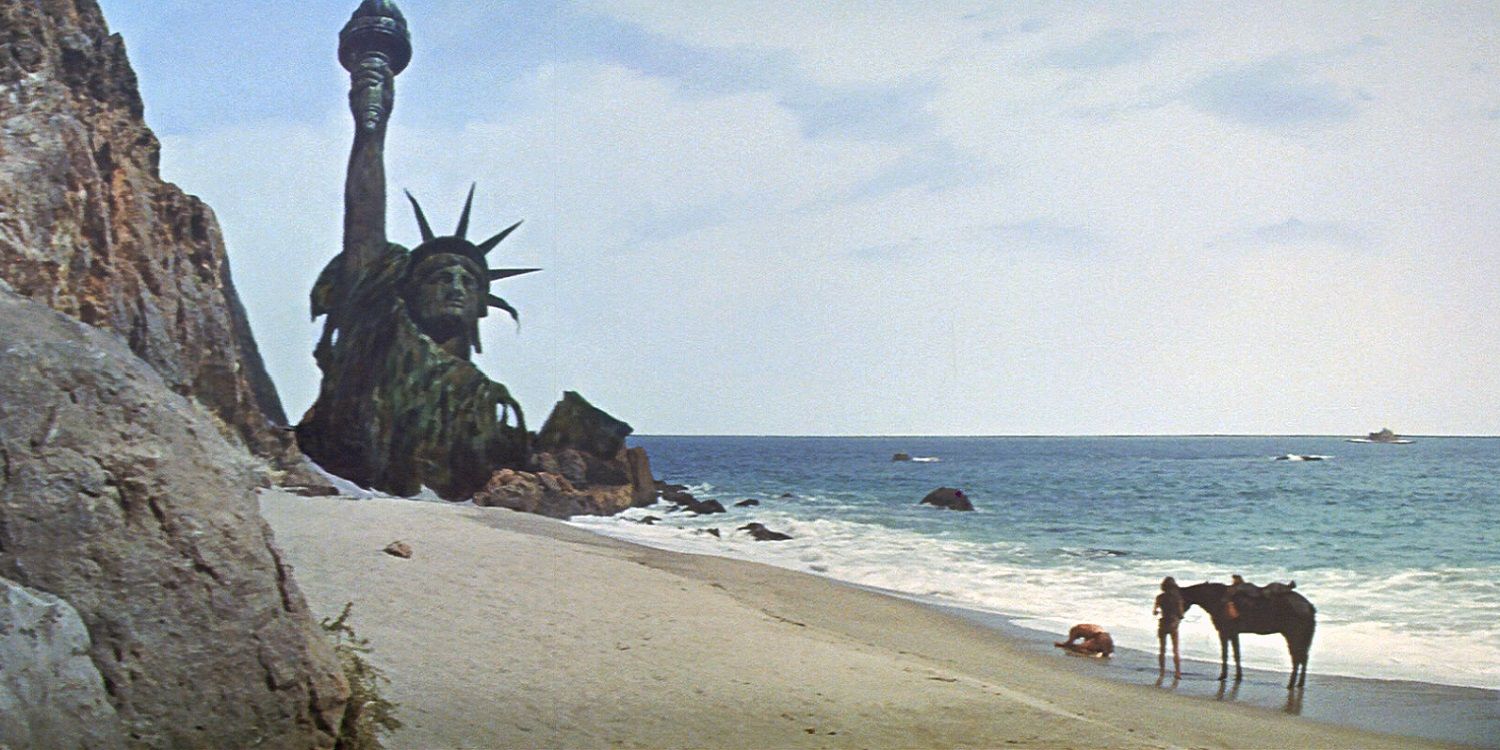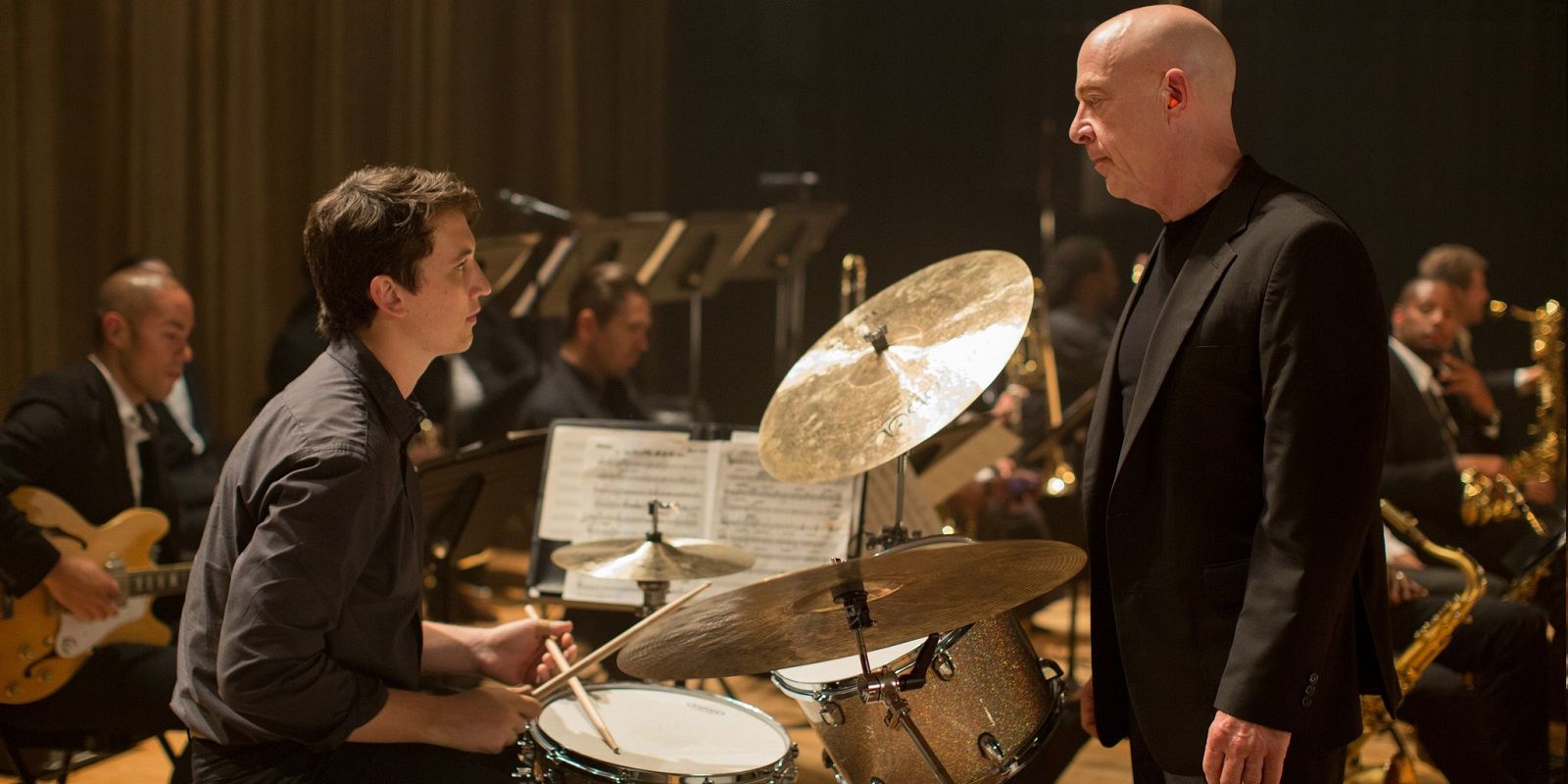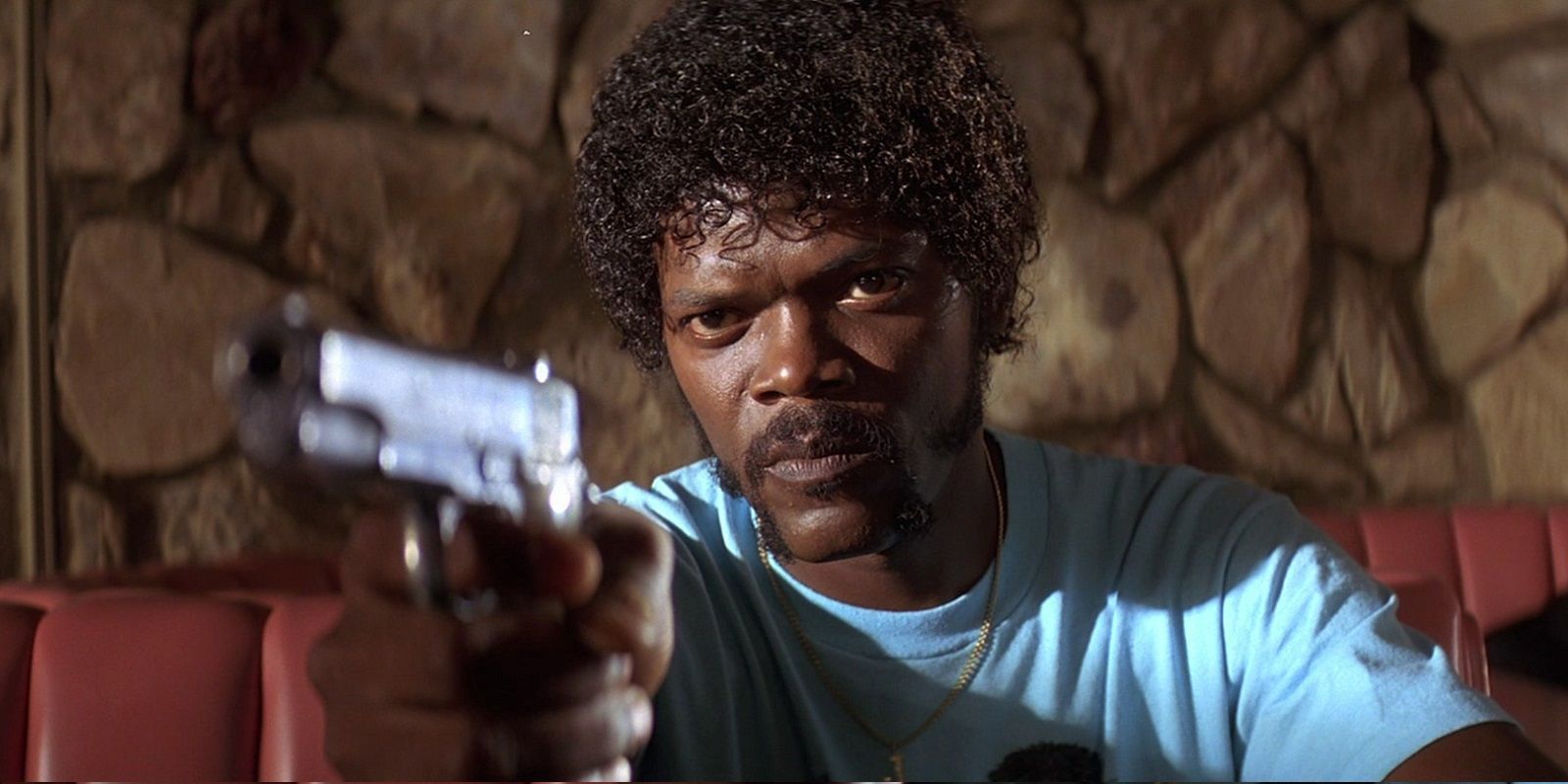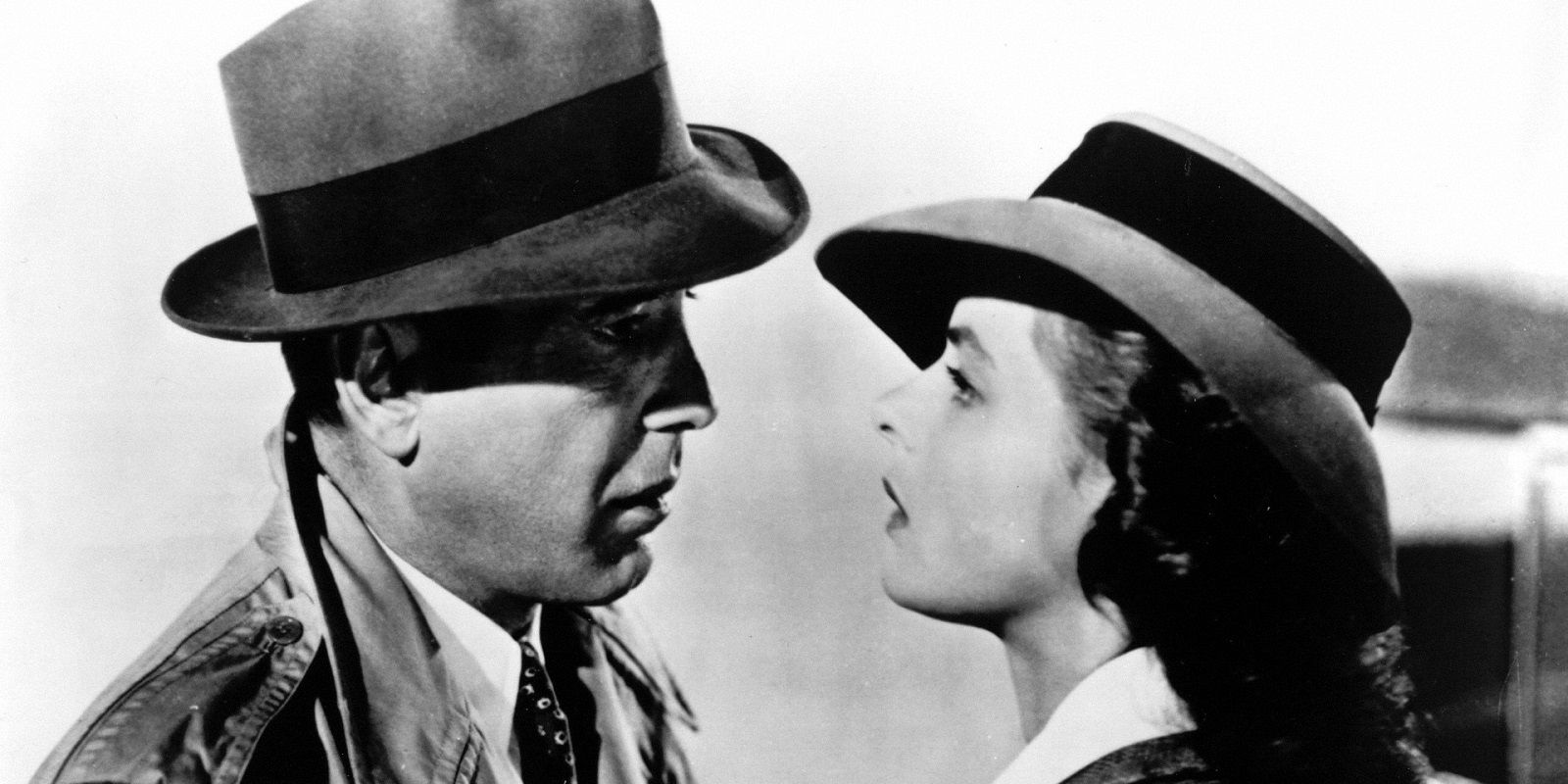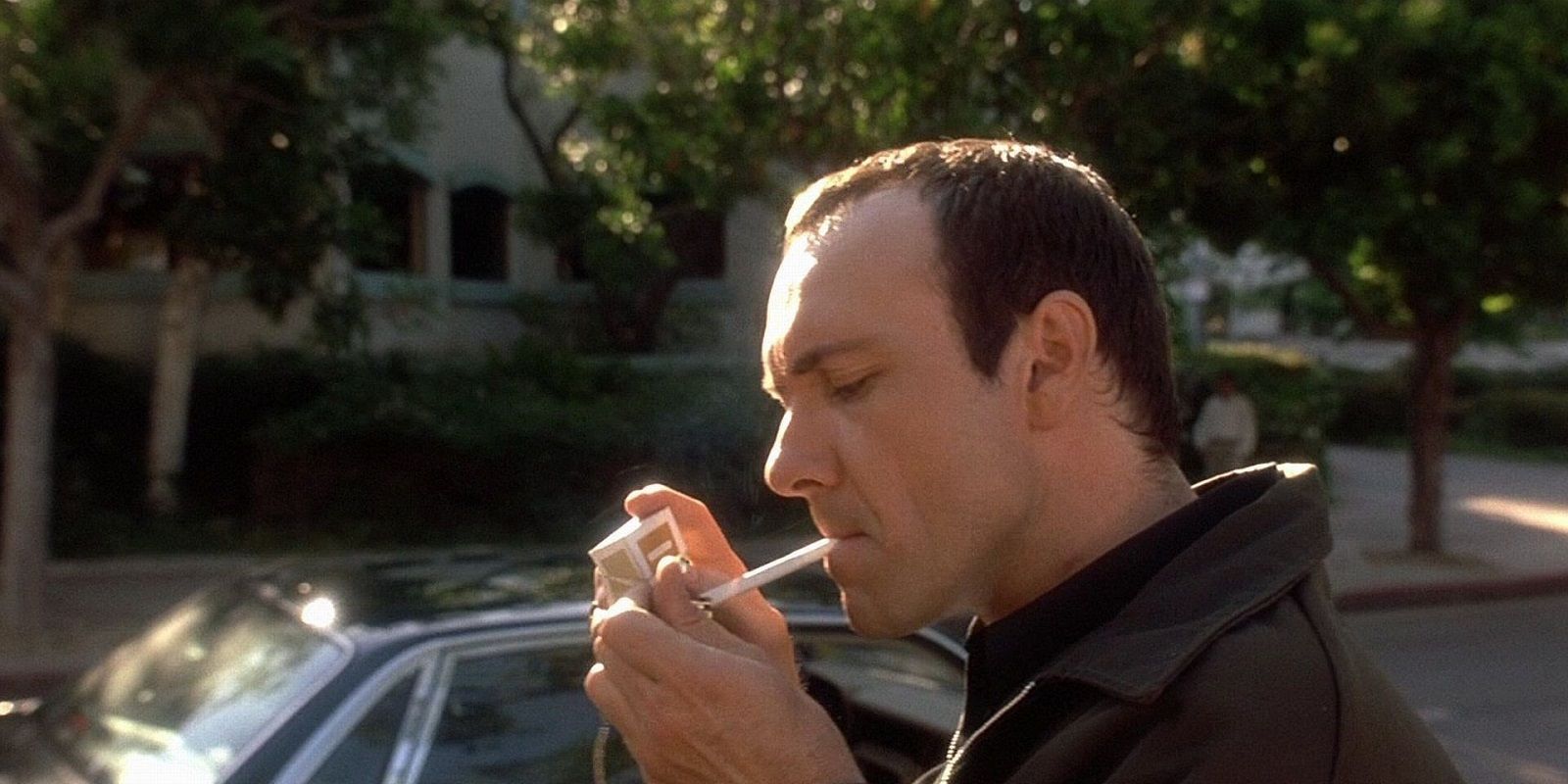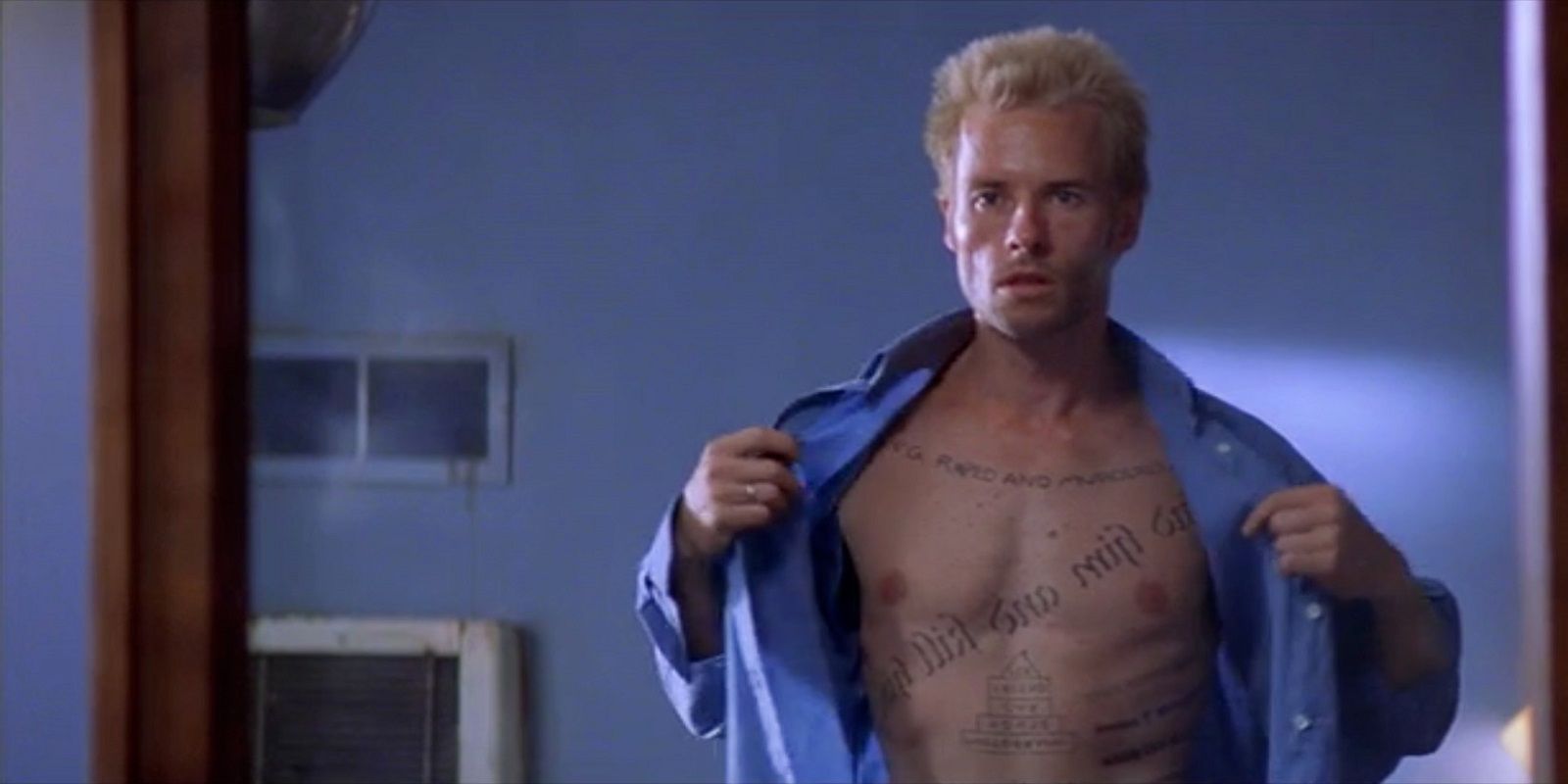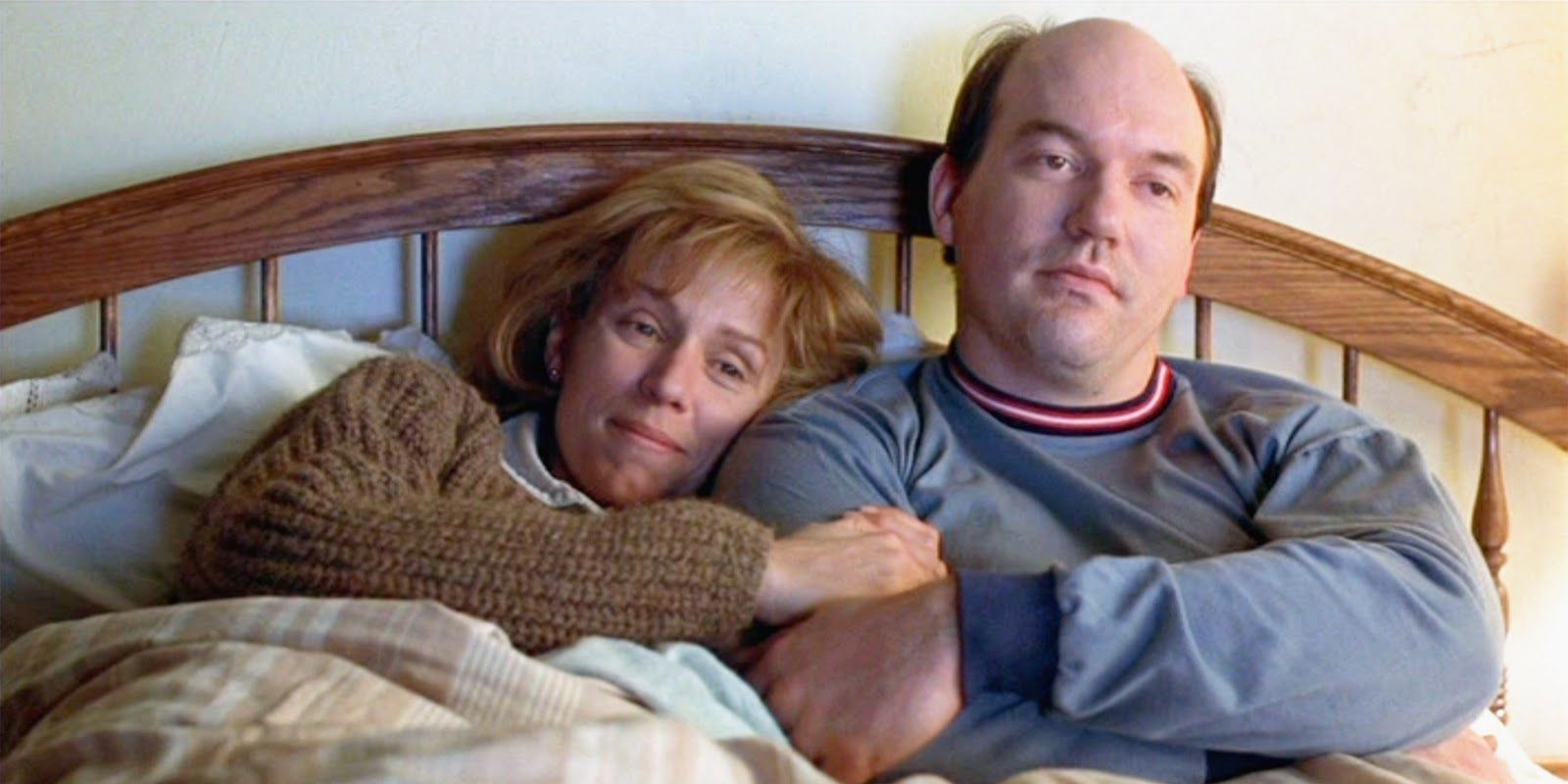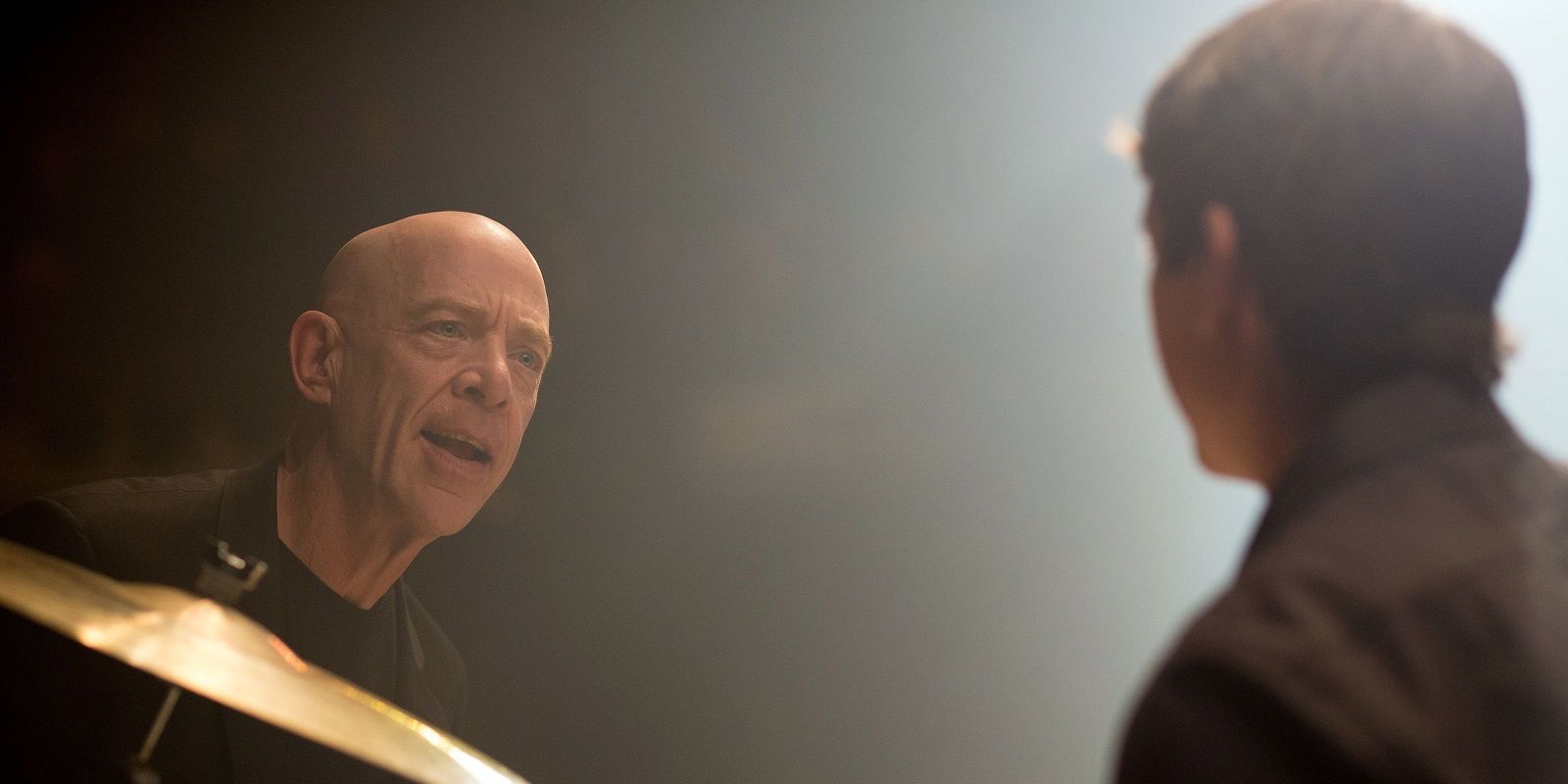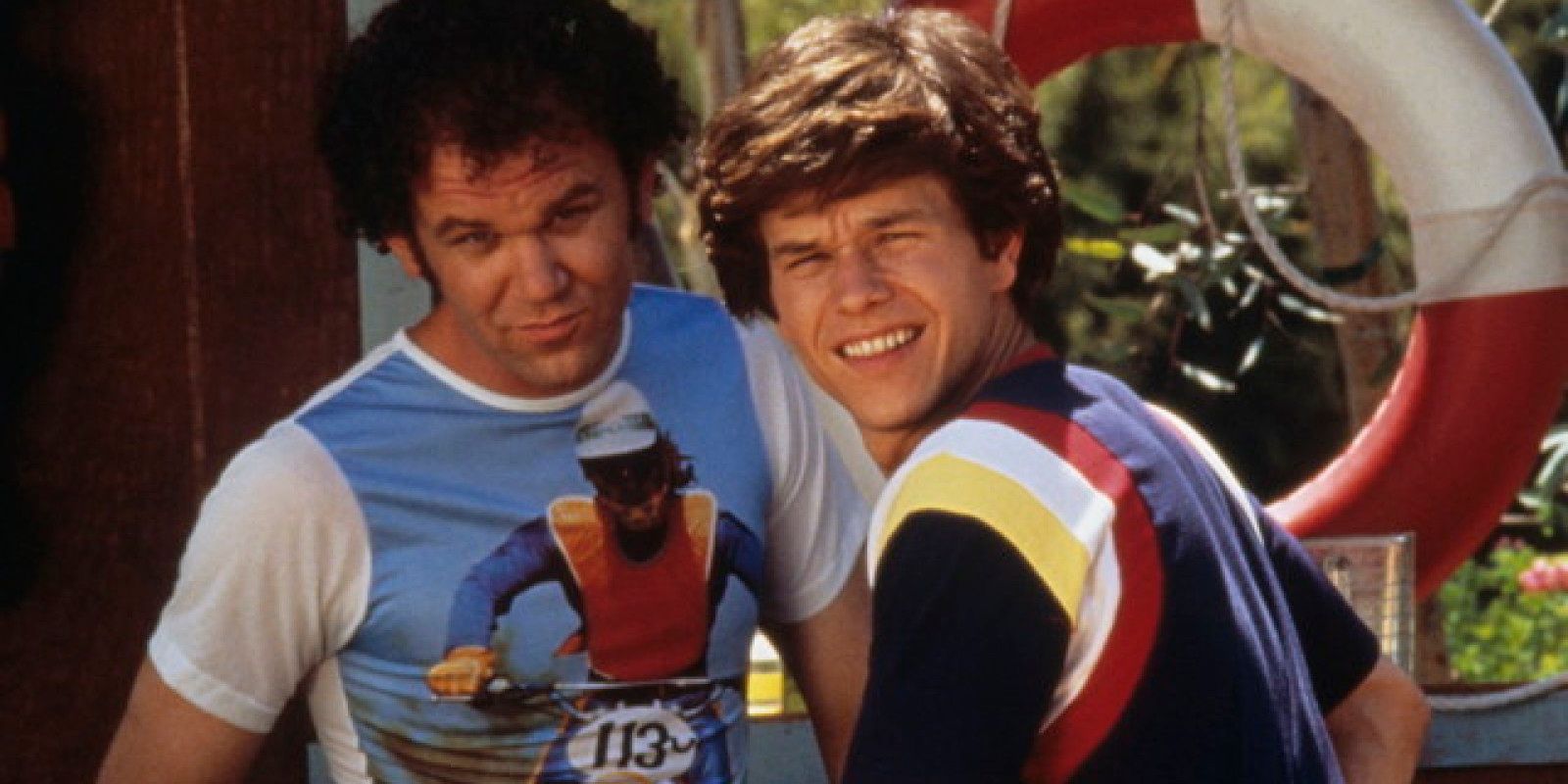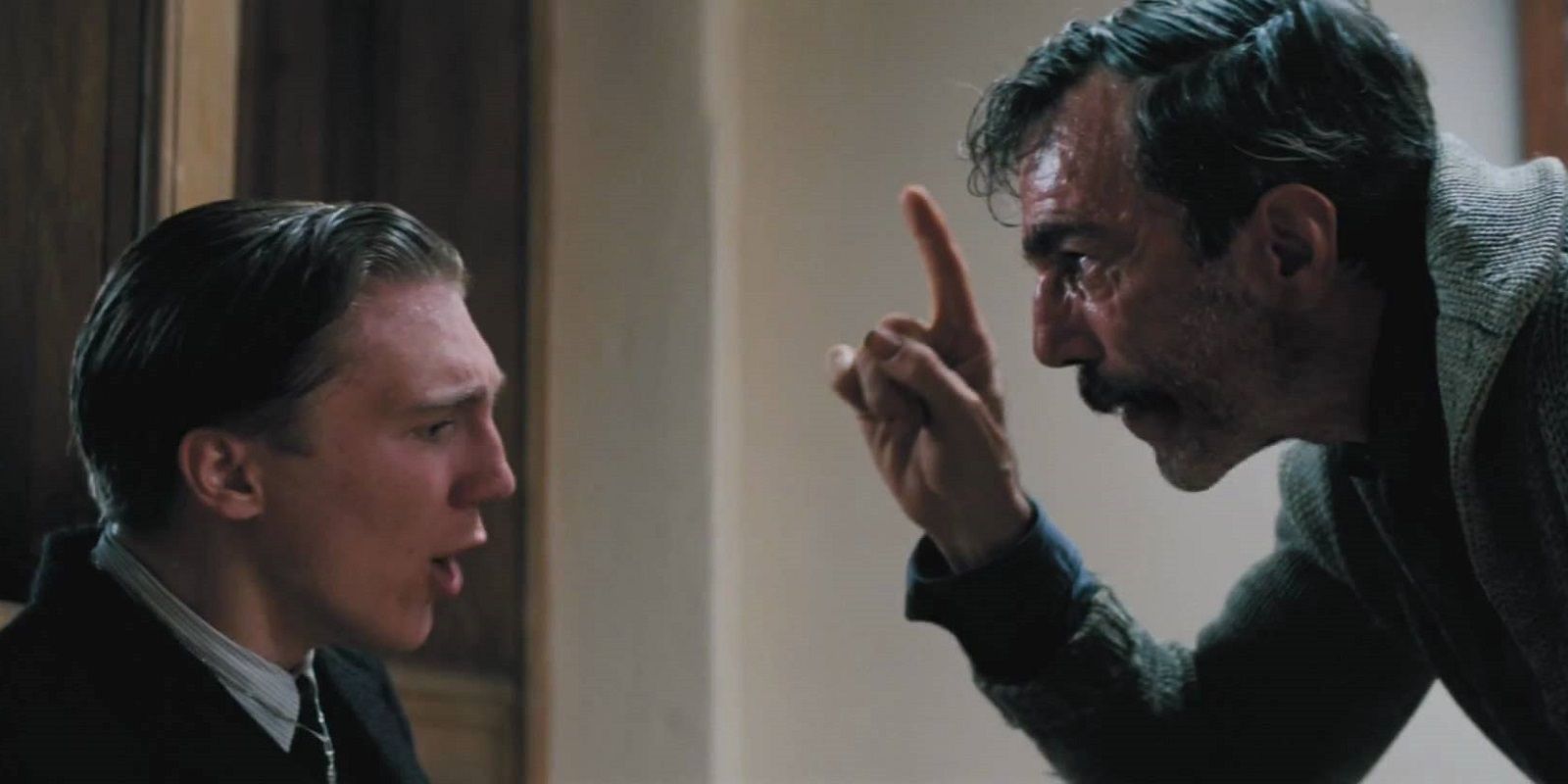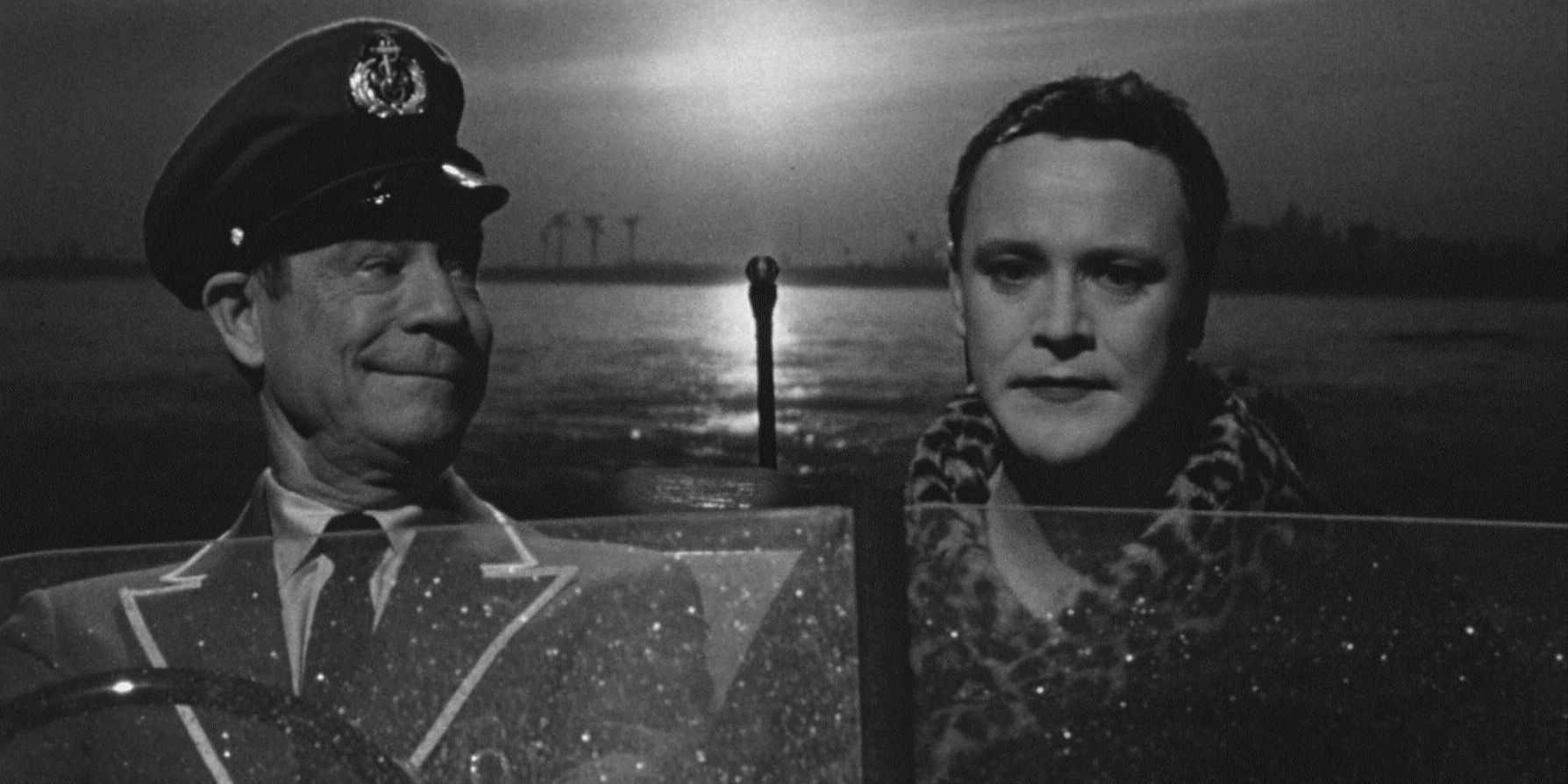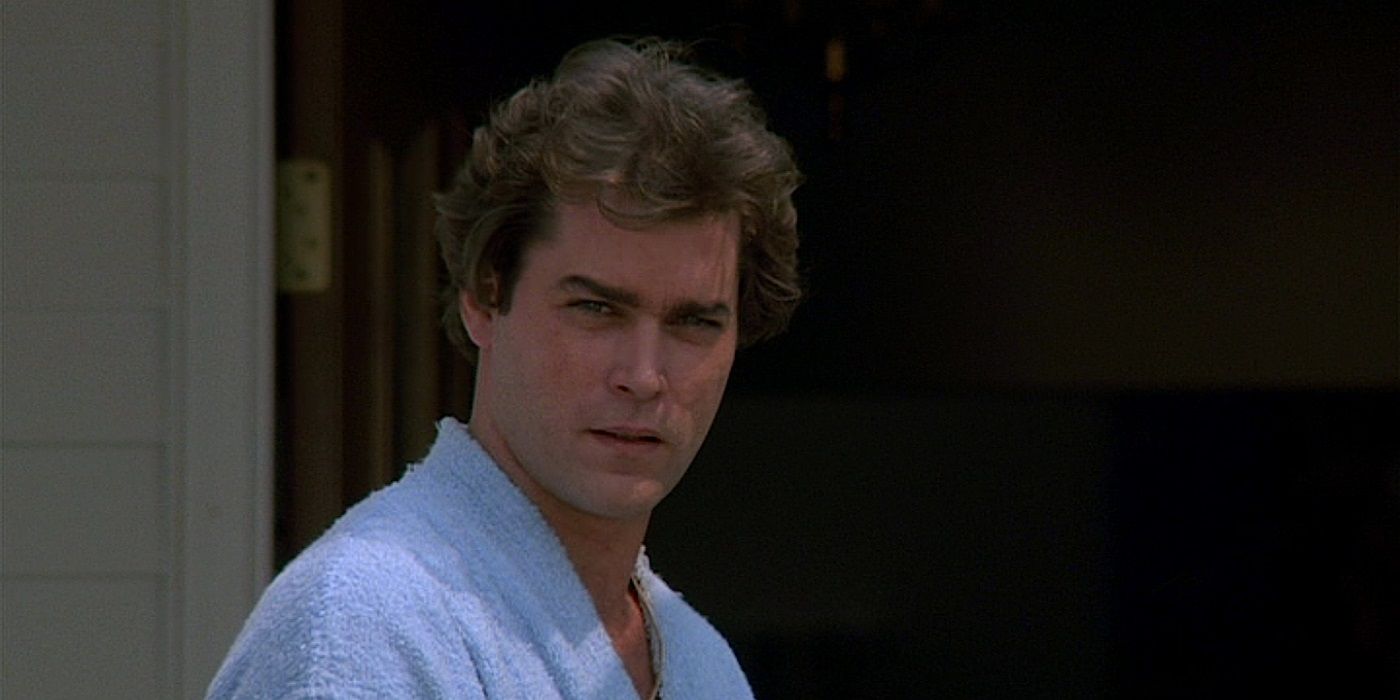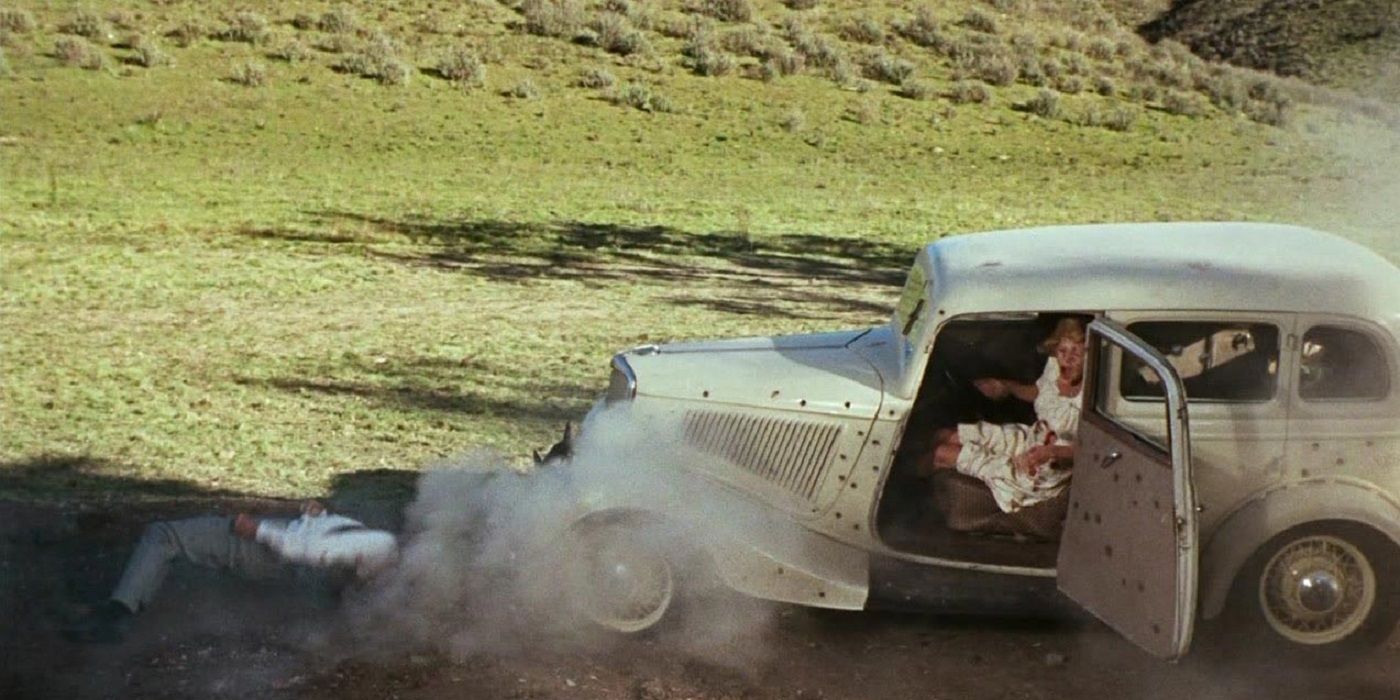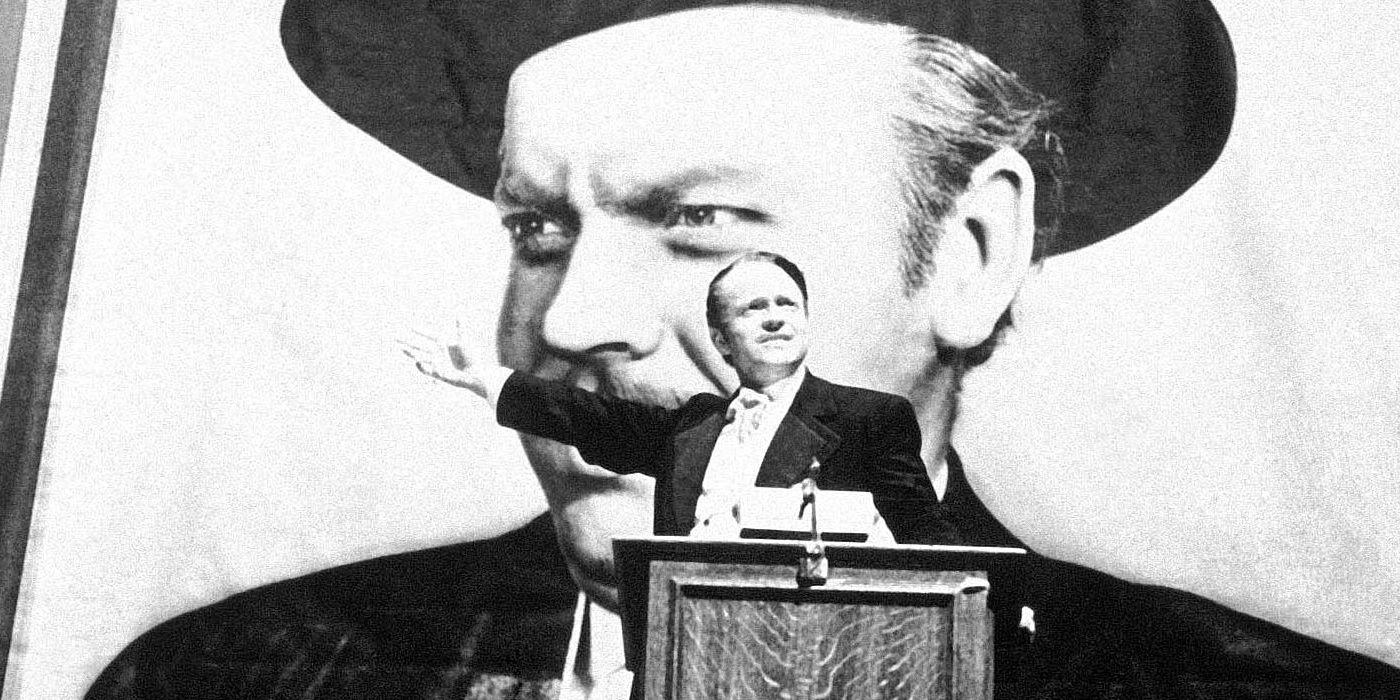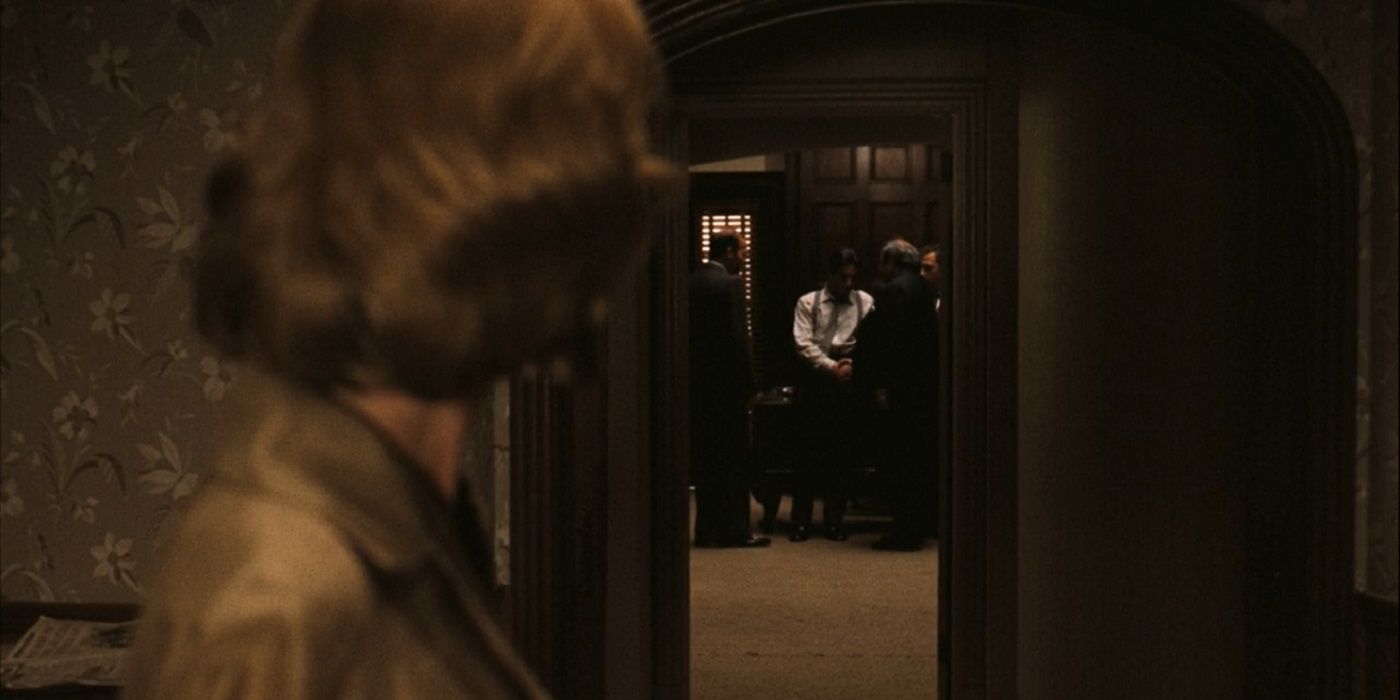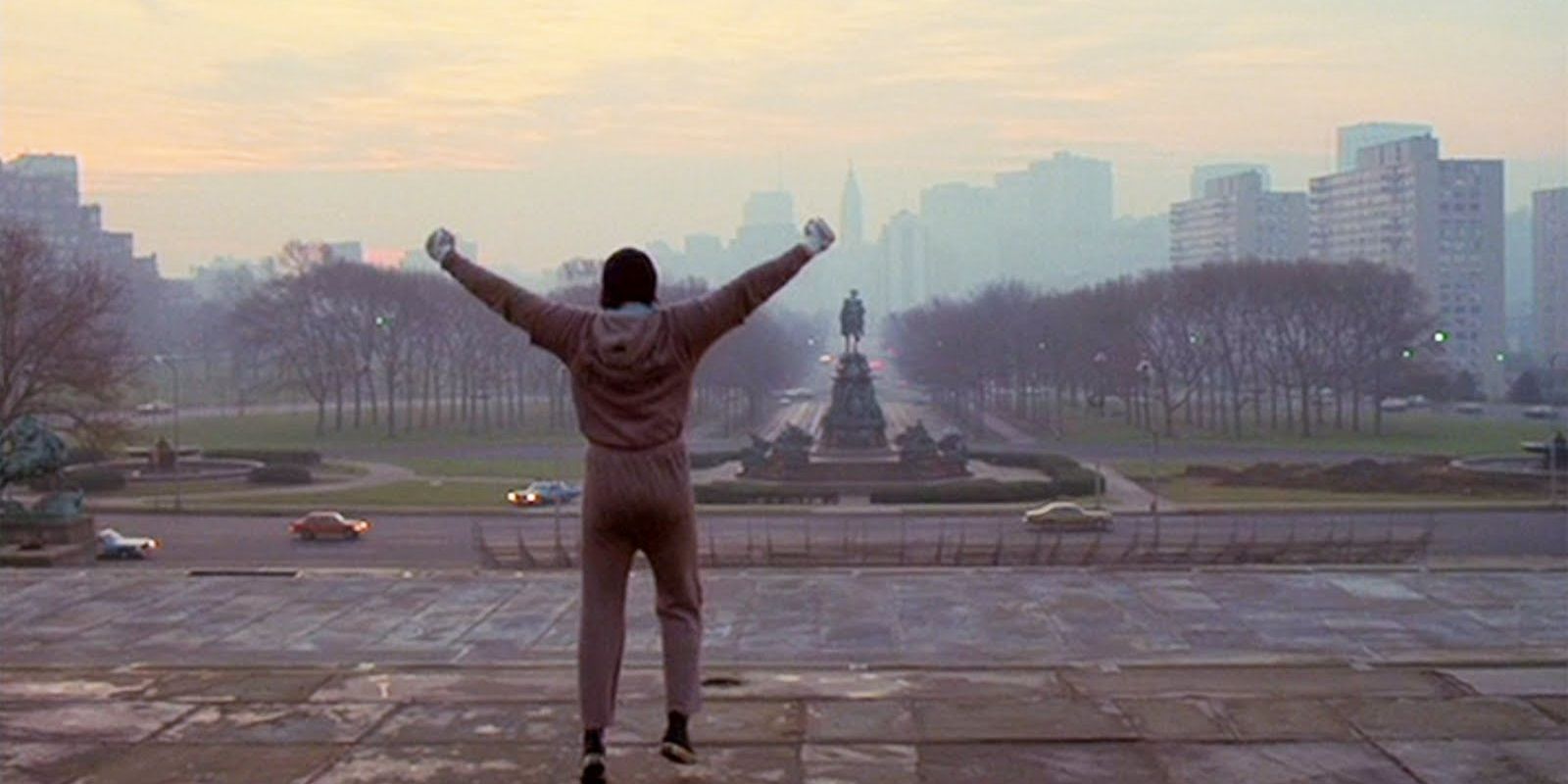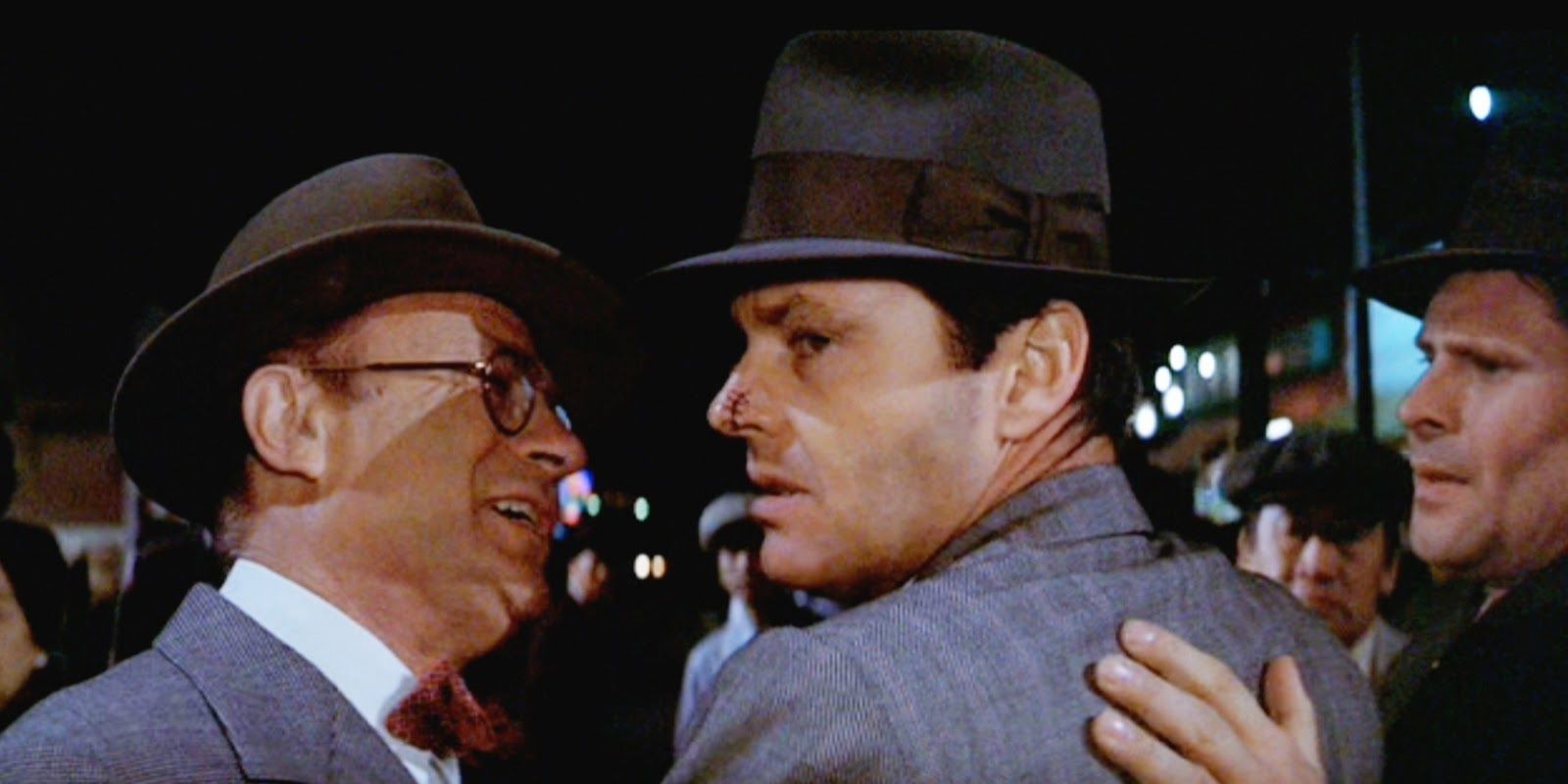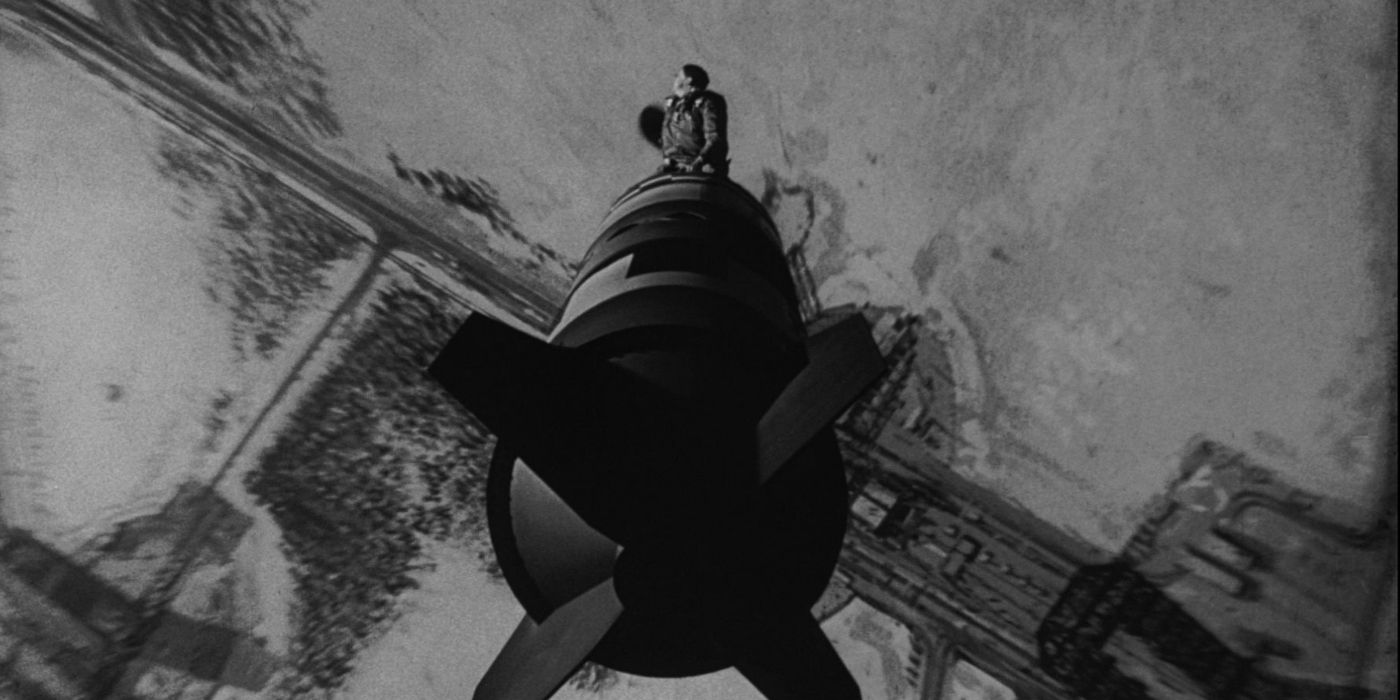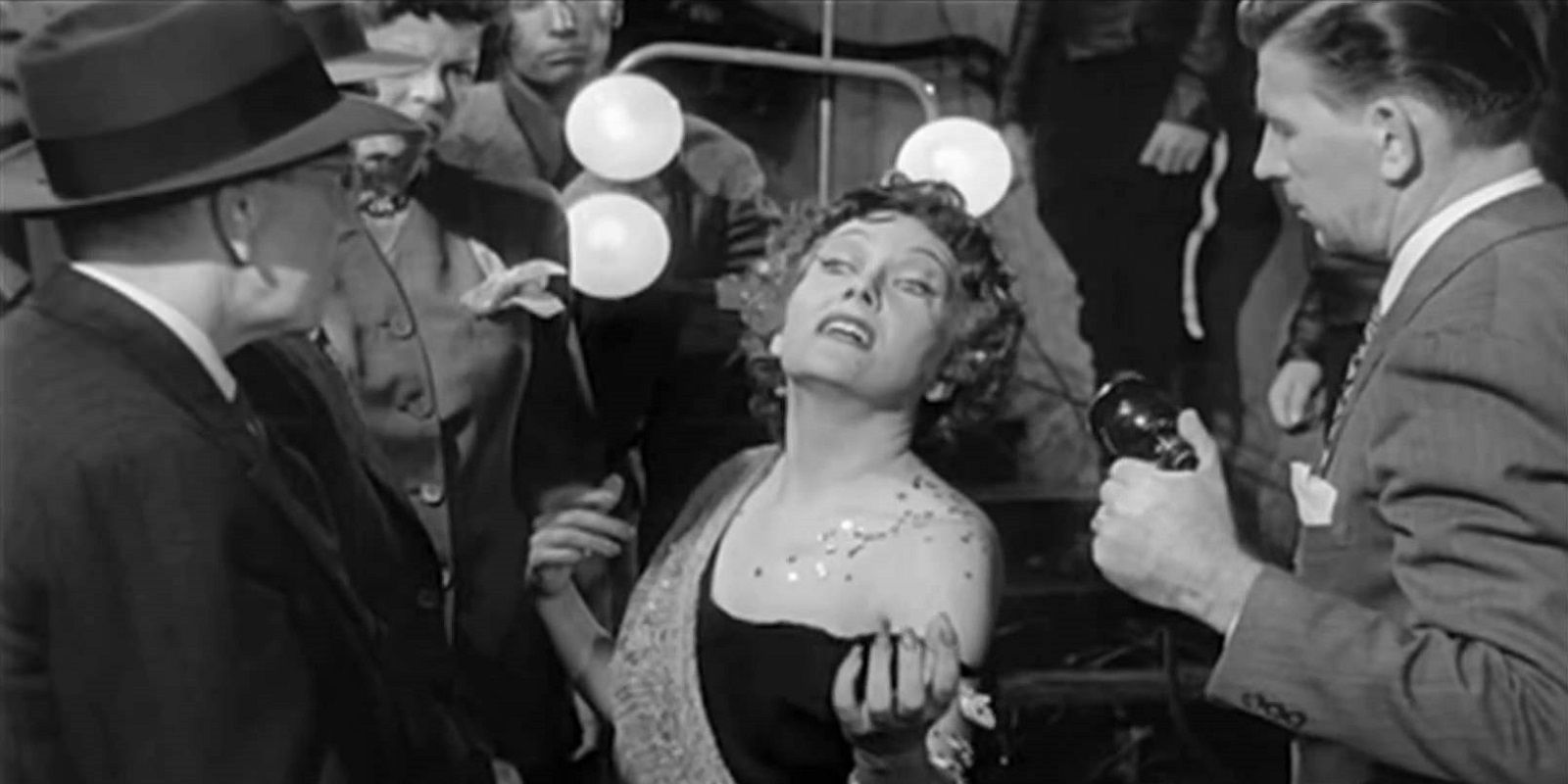Final scenes aren’t exactly easy. They’re expected to sum up an entire film, and prove to audiences that the time that they invested in the movie was worthwhile. As these scenes play out, it becomes abundantly clear that they are trying to prove a point. Sometimes, they’re trying to provide meaning and end the film on a note that gives viewers a sense of closure. At other times, they work towards avoiding any sense of closure, instead choosing to redefine the film that viewers have just witnessed.
This is a list of final scenes, which means it contains some of the best films ever made. Perhaps to no one’s surprise, many of the best films of all time also happen to have great endings. Still, there are some films on this list that would not be obvious inclusions on most “best of” lists. Endings can be shocking or comforting, bizarre or wonderful. Every entry on this list stands out. These are endings that work toward something. They succeed in what they attempt to do, and they do so without compromising on their ambitions. Endings can make or break a movie. They’re important. They're the 20 Best Final Movie Scenes of All Time.
20. Pulp Fiction
Pulp Fiction’s ending is a tense confrontation that actually occurs in the middle of its chronological story. Jules has just decided that he’s looking for redemption, but he ends up in the middle of a diner robbery that immediately tests his newfound holiness. As the scene unfolds, we can feel the incredible tension that Tarantino has infused the scene with. Jules and Vincent are violent men, and these diner robbers are absolutely in over their heads. What remains to be seen is whether everyone will make it out alive.
In the end, tensions are diffused, largely because of Jules’s spiritual awakening. Pulp Fiction’s ending is brilliant precisely because it leaves so much uncertain. The film ends, even though we’re well aware of the fact that Vincent will go on to die in a later scene, and we still have no idea what’s in the case. That’s the point. Pulp Fiction purposefully avoids ascribing meaning to its scene, and its ending reinforces that idea.
19. Casablanca
Casablanca is about unrequited love, and its ending reinforces those ideas. As Rick send Ilsa off, knowing he’ll probably never see her again, he’s not overly sentimental. Instead, he sends her off without much fuss. Afterwards, when it looks like Rick has doomed himself to save his lover and her husband, he finds help in the form of Louis Renault, the local police captain, who covers for Rick after he shoots a German officer.
As the pair walk off into the distance, they discuss their plans for the future. “Louis,” Rick says, “I think is the beginning of a beautiful friendship.” It’s a poignant and perfect ending, one that’s allowed Casablanca to endure to this day. It’s surprisingly restrained, the kind of movie that chooses to end on a note of clever dialogue that is perfectly true to character. Rick isn’t horribly sentimental, and that’s part of the reason we love him so.
18. The Usual Suspects
One of cinema’s greatest twists unfolds as The Usual Suspects comes to an end. Keyser Soze, the horrifying villain at the center of the mystery that is unfolding in front of our eyes, is actually Verbal Kint, the mild mannered man who has been questioned throughout the film. What’s fascinating about this ending is what it does for the story that’s been told thus far. It singlehandedly erases everything, suggesting that the story that Verbal has been telling was a completely fabricated one.
The twist is masterfully executed, using its medium to bring together all of the disparate elements of Verbal Kint’s story. As the detective realizes who he’s just released from custody, he simultaneously understands that it’s too late. “The greatest trick the devil ever pulled was convincing the world he didn’t exist,” says Verbal. He proves it at the end of the movie, having convincingly put on an act for 90 minutes of interrogation and then disappeared. He became nothing more than a face in the crowd.
17. Memento
Another twist ending, Memento’s final moments cast a cloud over the character at its center. Lenny, the hero of our story, is a man who can’t remember things that happened to him just ten minutes before. This means, of course, that he can’t remember where he is or what he’s done. If something’s important, if there’s a truth that Lenny wants to make sure he never forgets, he tattoos it on his body. He’s hunting for his wife’s killer, but really, he’s already found them.
The ending of Memento reveals that Lenny has been lying to himself. He doesn’t remember that he’s lied, and so he accepts these lies as the absolute truth. Really, it’s something that everyone has done. Lenny tells himself lies to give himself purpose. They get him through the day. They allow him to kill without remorse, even though the criminal who attacked his wife is long gone. They allow him to do whatever he wants, whenever he wants to. His lies are what he’s formed his identity around. If he removed them, what would be left?
16. Fargo
Fargo is one of the Coen brothers’ very best films, and its ending is an ideal image of the fundamental goodness of its characters. Like most of the Coens’ best films, Fargo is a meditation on the nature of good and evil in our world, and on the circumstances that turn ordinary people into criminals. The one character it posits as fundamentally good is Marge Gunderson, the incredibly pregnant sheriff forced to follow the trail left by these haphazard criminals.
In its final scene, Fargo doesn’t erupt in violence or shock its audience. Instead, it focuses on a moment of simple intimacy between Marge and her husband, two good people living in a world that doesn’t always live up to their ideal. Fargo is a tribute to the goodness of these people, and of people all over who try to make the world better just by existing. It’s a simple pleasure, but an enormously effective one. Fargo is a depiction of evil, but it’s also interested in the good people that surround them. That’s what makes it worthwhile, and it’s what makes the ending so effective.
15. Whiplash
Whiplash’s final scene is a perfectly executed series of images and sounds that casts ambiguity over everything that has come before it. It’s in these final moments that Miles Teller’s Andrew Neiman finally becomes the incredible drummer that Terence Fletcher always wanted him to be. The terrifying thing about this moment is that it almost justifies that abuse that Neiman goes through over the course of the film.
The final scene chronicles the performance of a single song, and gives Neiman an extended solo in which he proves himself to be everything Fletcher always seemed to be pushing him towards. Neiman hijacks the entire production, making it about his own talent and musicianship. This time, though, it pays off in an incredible performance that’s as impressive on a filmic level as it is on a musical one. Neiman becomes one of the greats, and he sacrifices everything to get there. Fletcher abuses him for 100 minutes, and is validated for it. Whether all of this was worth the final five minutes is up to the viewer, and that’s just the way it should be.
14. Boogie Nights
Boogie Nights is a singular achievement. It’s about ambition and capitalism and ego. It’s also about porn. In being about pornography, the film chooses to end on a rather graphic note. It reveals the size of Dirk Diggler’s penis, and in doing so, tells us everything that the film was about from its first moment. Dirk’s ego is intimately tied to his appendage. What makes Boogie Nights so tender is its ability to paint Dirk as a tragic figure, even as it judges much of what he does.
Much is made of Dirk’s intellect, or lack thereof. Because he is diminished in this way, he becomes a purely physical beast. As he tells himself how much of a star he is, only his penis is visible onscreen. His face is gone. All we have left is the part of Dirk that he believes to be the star. It’s what he’s been reduced to, and it’s all he sees himself as now.
13. 2001: A Space Odyssey
The ending of 2001: A Space Odyssey may actually be inexplicable. It’s in this profound ambiguity that the film is able to find meaning, and it’s in its final moments that it truly becomes out of this world. After HAL 9000 has been dismantled and destroyed, we get a series of scenes and images that are confusing at best. Although they work as a simple cacophony of filmic wonder, there is also some meaning infused there, and some incredibly profound points about the nature of evolutionary progress.
What we really see at the end of 2001 is humanity’s next evolution. The giant baby floating towards Earth may seem like a strange way to end a film, but it’s an idea of what’s next. The obelisks that appear throughout the film signal these changes, and they’re ones that can easily be viewed as both grotesque and beautiful. 2001 has some of the biggest ideas of any film ever made, and its ending puts a final touch on these images, ones as beautiful as the Strauss piece they’re set to.
12. There Will be Blood
There Will Be Blood’s final moments are shocking, brutal, and utterly spectacular. The film is one about fathers and sons, and about the work that men must do to become great. In an all-time great performance from Daniel Day-Lewis as Daniel Plainview, the film breathes with the feeling of moral corruption. Plainview is a once in a lifetime character, someone who fights to be great but becomes horrible along the way.
In the film’s final scene, we see Plainview commit murder, plain and simple. Not only does he drink Paul Dano’s milkshake, he hits him over the head with a bowling pin a few times. The portrait of Plainview alone in his home, surrounded only by his possessions, says everything there is to say about the man’s life and his legacy. He has nothing and no one. He’s utterly and completely alone. As Plainview himself puts it, “I’m finished.” We just might have to agree Daniel.
11. Some Like it Hot
Hopefully, Some Like it Hot will be a refreshing change of pace for this list full of dark and dour films. Some Like it Hot ends with a joke, albeit an incredibly effective one. The film itself centers on two men who dress as women in order to escape the scene of a mafia murder they’ve witnessed. The film naturally digresses into various stages of ridiculousness even as the mafia close in on the pair from all sides.
In the film’s final scene, one of the pair hitches a ride out of town with a friendly millionaire who wants to marry him. Before revealing himself to be a man, he lists an assortment of reasons why he and the millionaire cannot be married. When none of these convince him, he reveals himself to be a man. The millionaire’s simple reply? “Well, nobody’s perfect.” It may be the greatest last line in the history of cinema, and it’s the perfect punchline to a movie jam-packed with them.
10. Goodfellas
In many ways a critique of the ambitions that were so encouraged at the time, the ending is wholly unsatisfying. Our main character is deplorable, a kid who was raised in the mob and worked within it for most of his life. Goodfellas goes out of its way to make his life seem both attractive and deplorable. It’s meant to entice the viewer, even as the viewer understands that the bonds these mob men have aren’t real; they’re all a function of the job.
In the end, Henry Hill gets away with all of it. He goes into witness protection, rats on his friends, and becomes a normal American. He isn’t punished for his sins, because he took the coward’s way out. In the end, he was a traitor even among thieves, and irredeemable man who still managed to lead an incredibly successful life. Goodfellas leaves us with that knowledge, and we’re forced to reckon with what it might mean.
9. Bonnie and Clyde
Bonnie and Clyde are the ultimate antiheroes. These are two people who fragrantly break the law, and often go unpunished. In Bonnie and Clyde’s final scene, though, they get what’s coming to them. The pair stop to help an average guy change his tire. What they don’t know is that the sheriff they attacked earlier in the film is waiting to ambush them. In these final moments, we get an instant in which the pair understand what is about to happen to them, and then, suddenly, it happens.
Guns fire from every direction, and the pair are shot down in a haze of insanity that lasts far longer than it should. It’s the intensity of the violence that’s really striking, and the way these lovable outlaws are so suddenly removed from the world. There’s no catharsis or defining moment. The pair don’t have a chance to tell each other how much they mean to them. They only get a quick, sudden, horrifying ending.
8. Before Sunset
Richard Linklater embraces the impulses of his characters. Before Sunset is about two people who have only met on one other occasion meeting again nine years later. The genius of the film is that, while it is fully engaged in this rekindled romance, it’s also very much aware of how foolish the people at its center are being. In its final moments, it retreats to Celine’s apartment, a place of intimacy after the pair have toured the streets of Paris for over an hour.
Jesse really shouldn’t be there at all; he has a flight to catch. Celine points out this while she dances in her apartment. “Baby,” she says, “you are going to miss that plane.” Jesse’s response is simple and perfect. “I know.” He’s already fallen in love with her again, and he’s willing to throw the rest of his life away to be with her. Is it stupid? Absolutely. Is it romantic? Obviously. Is it perfect? Pretty much.
7. Citizen Kane
“Rosebud.” A single word which changed the history of film as we know it today. Citizen Kane is still known as one of the pinnacles of cinema, and Rosebud is part of the reason why. In its final scene, Citizen Kane reveals the meaning behind these seemingly nonsensical words, the last Charles Foster Kane ever spoke, and allows audiences to reckon with their meaning. That’s right, Rosebud is a sled. It’s the childhood sled Kane used to play on before he became the wealthy magnate the film depicts.
Whether Rosebud is the final piece in Kane’s puzzle is a different question entirely. The Kane that Citizen Kane depicts is one of incredible complexity, and it would be inaccurate to suggest that knowing what his final words meant would bring the characters or the viewers any closer to understanding the man. Still, Rosebud is our way into this world, and its final moment is a fitting one. As the childhood sled burns, so does Kane’s legacy. His history, his life, now it’s all a part of someone else’s story. Even the most personal of artifacts is ultimately dismantled by the relentless push of time.
6. The Godfather
The Godfather ends on the most sinister note imaginable. It’s a story about the ease with which evil can permeate a person’s life, and its final scene puts a natural end to that story. As Michael Corleone begins to take over his family’s business, we see the man he was disappear. That is made real in the final scene, when Michael literally slams the door on his fiancé. He’s now a part of the mob, a leader in his family and an evil man.
It wouldn’t be until The Godfather Part II that we would completely understand the depths to which Michael eventually sinks, but this film shows us the horrifying transition. The Godfather shows us how a decent man can be corrupted. In many ways, Michael is a figure who is much more common today than he would have been in 1972. He’s a classic antihero, the kind of figure is corrupted by his own desire to help. Michael learns that, in order to protect his family, he has to sacrifice his morality. It’s a loss he’s willing to accept.
5. Rocky
The genius of Rocky is in its sense of reality. Rocky is the ultimate underdog, a character who works to earn the respect he feels he deserves. In its final scene, Rocky earns that respect even as he loses the fight. What’s important is that he loses it standing, which is the first time his opponent Apollo Creed has ever failed to knock out the man he fought against. Rocky’s loss was in and of itself a victory. It was definitive proof that, even if he couldn’t beat Creed, he proved Creed couldn’t really beat him either.
For Rocky Balboa, this fight was about proving that he was worth something, that he wasn’t the useless guy everyone believed him to be. The ending works because the rest of the movie has tried so carefully to introduce Rocky to us. We know who he is, and we know how it important it is for him to stay standing. He doesn’t win, it’s true. But he doesn’t really lose either.
4. Chinatown
So many of the films on this list are summed up by a final line, and that may be most true of Chinatown, which uses its final moment to undercut everything that has come before it. After a horrible killing that is one of the darker endings in Hollywood history, the private detective at the center of it all is encouraged to simply forget about it. “Forget it Jake, it’s Chinatown,” is the film’s final line, one which encourages the characters and audience to forget what they’ve seen.
It’s almost as if they could simply write it off. The events in that part of town don’t concern them, except now we know what happened, and understand all the corruption and sickness that infests the entirety of the world that Chinatown creates. Instead of suggesting any sort of hope, though, the film says that the only relief is in forgetting. We can’t win, so we might as well quit.
3. Dr. Strangelove or: How I Learned to Stop Worrying and Love the Bomb
Dr. Strangelove or: How I Learned to Stop Worrying and Love the Bomb has one of the longer movie titles in the history of cinema, and one of its better endings. The final scene of the film is an ode to the madness of its satire, one which shows viewers how easily things could go haywire in the age of nuclear weapons. One bad message, and one broken radio, and nuclear war is initiated. One bomb is dropped, and patriotically at that, and the world as we know it comes to an end.
Dr. Strangelove is one of the funniest movies ever made, but it’s also horrifyingly real. It points to the problems with an arms race, and the ways in which even the smallest of mishaps could actually end the human race. It plays these facts for comedy, and does so to great effect. That doesn’t change the fact that the Cold War world was incredibly dangerous, and no one seemed to understand exactly how close society was to complete and utter ruin.
2. Planet of the Apes
Planet of the Apes may have provided audiences with one of the first real twist endings. In its final moments, the strange world that a crew of astronauts come to inhabit following a crash landing is revealed to be our own. This world, one where apes are dominant and humans are subservient creatures who don’t speak, is earth after a nuclear fallout, and he astronauts at the film’s center haven’t traveled through space, they’ve traveled through time.
Planet of the Apes is a defining moment in Cold War fear. The idea that mankind could destroy itself terrified everyone for decades, and Planet of the Apes shows us what the world could look like after humanity has been almost completely wiped out. The apes have taken over, and humans are nothing more than the mongrels who live at their feet. It’s science fiction, sure, but the startlingly real kind that keeps you up half the night - in other words, the best kind.
1. Sunset Blvd.
“I’m ready for my close-up, Mr. Demille,” or so goes the famous final words of Sunset Blvd. There are few movies that have ended on such a distinctly horrifying note. After silent film star Norma Desmond shoots Joe Gillis, the man who has just told her that she has been forgotten by Hollywood, she awaits the crowd that has gathered at the scene of the murder. Seeing the crowd of people, she knows they must be there for her, and she moves toward them. She has to please her fans, after all.
Norma has completely lost her mind by this point, and this ending shows us the madness that can come after fame has left. Sunset Blvd. is a grim reminder of what the movie-making industry can do to the people inside of it, especially once they’ve been left behind. We know this ending is coming from the very beginning of the film. Still, that doesn’t change how horrifying it is. Norma is a woman obsessed with her own image, unable to understand that no one else shares her obsession. She’s crazy, but you can see that she once wasn’t, and that’s what’s truly terrifying.

